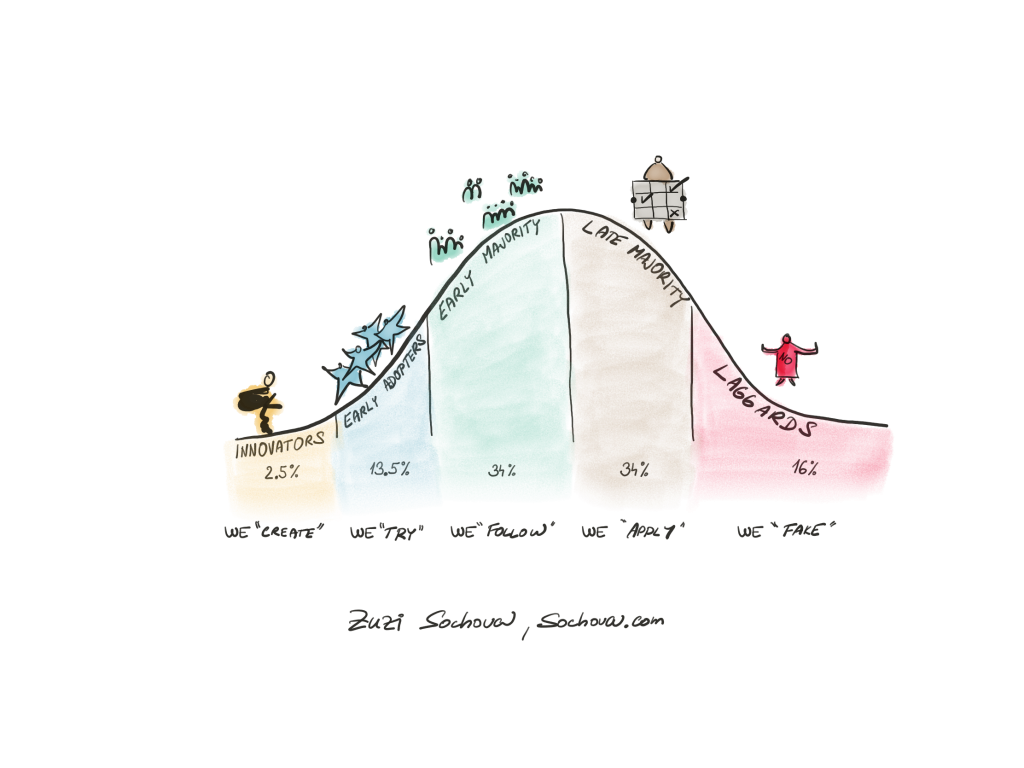ScrumMasters are the most misunderstood role in Agile space. Organizations often take them as assistants of the team, like some expensive administrators. They let them update tasks and schedule meetings, and they believe that’s it. However such work seems to be important from a traditional point of view where we need to allocate tasks to individuals and handle dependencies, in Agile it’s not much needed, because of a regular cadence of events and team ownership and responsibility for their work and the value they deliver. When we accept that ScrumMasters are not here to become team assistants, what are they doing and what is their value to the organization?
The real goal of ScrumMaster is to create self-managing, cross-functional teams, constantly look for improvements, help teams to become better, and eventually hyper-performing. It’s a leadership position. They don’t micromanage what individual team members do, but instead, they create an environment where teams can flourish by facilitating the conversation and collaboration and by coaching them for improvement.
Many ScrumMasters got it and focus on helping their teams to become great. But unfortunately very often they forget that the ‘My Team’ level of the #ScrumMasterWay concept is just the beginning of their journey and can only create a limited impact on the organization. Now don’t take me wrong. It’s a good start. But it’s only a beginning. Once they learn how to build self-managing teams from groups of individuals, and how to make them cross-functional, it’s time for them to shift to the ‘Relationship’ level of the #ScrumMasterWay concept and focus on the broader ecosystem. Help the Product Owners to work differently with their stakeholders and build more value-driven backlogs, create value streams in the organization, initiate the shift from projects to products, work with management on goals that would be more team-oriented over individual-oriented, and introduce some meaningful scaling approach to help the organization to reflect and be better at delivering value for the customers and achieving some real business impact. Because at the end of the day, no one cares if you use Scrum, no one cares which agile scaling framework you implemented. The only thing that matters is if you could help your organization to become more successful, create some impact, and bring a return on investment.
And ScrumMasters who are only active on the ‘My Team’ level of the #ScrumMasterWay concept can only create a limited impact on the organizational business. Working at the ‘My team’ level is more like a kindergarten for ScrumMasters. So grow up, and help your organizations to become successful.
Agile is in the first place about change, so don’t be afraid to change the status quo, don’t be afraid to challenge people. There is a sentence you should never say as a ScrumMaster. “It will never work in this organization”. Everything is possible. If you believe it and you are not afraid to go for it, you’re going to be a great ScrumMaster, and your organization would appreciate what you’re doing. Remember that success scale, not Agile. So stop focusing that much on different practices and start focusing on creating an impact on the organization and helping your organization to see it. And that requires a significant change at the ‘Relationship’ level and eventually, the ‘Entire System’ level of the #ScrumMasterWay concept.

